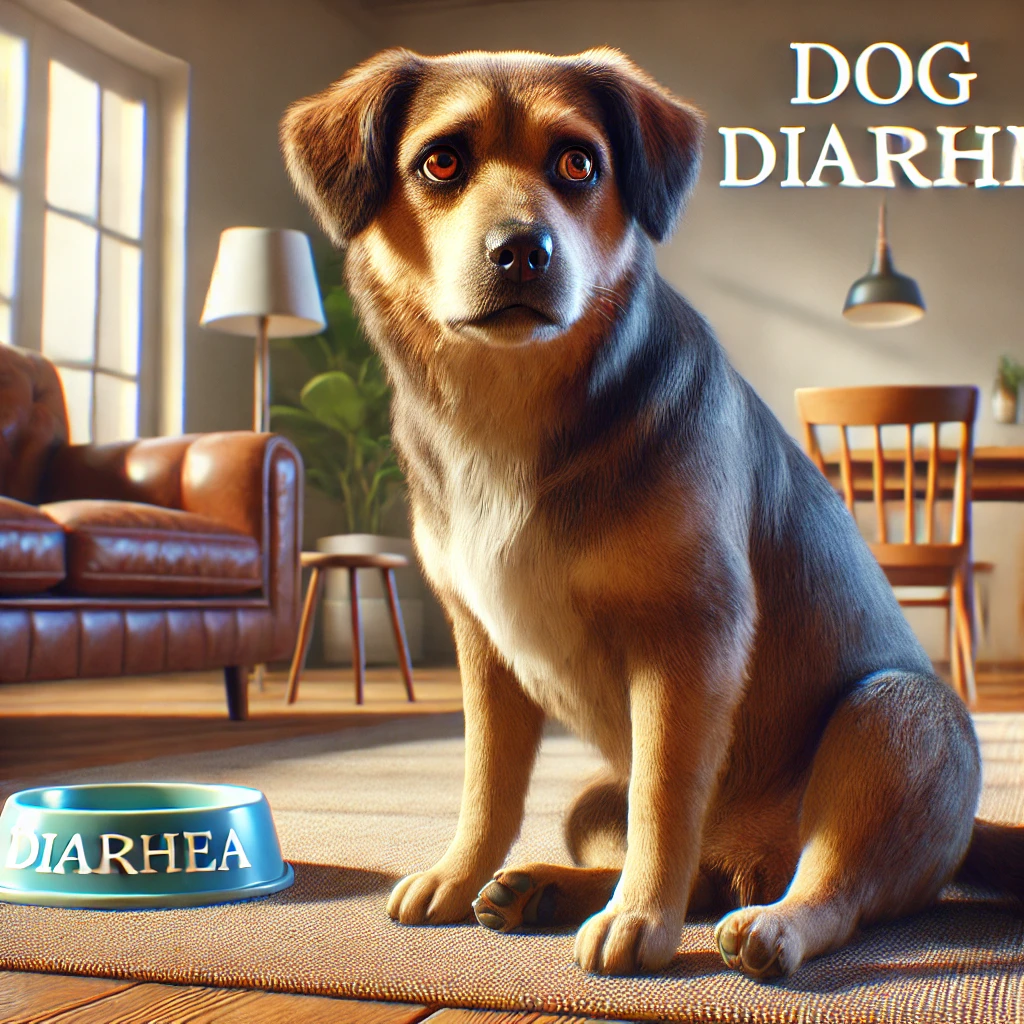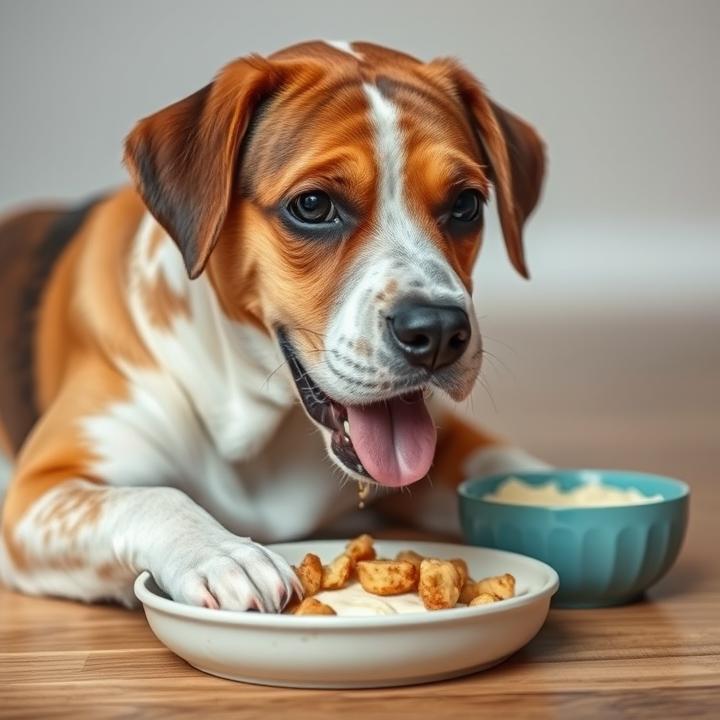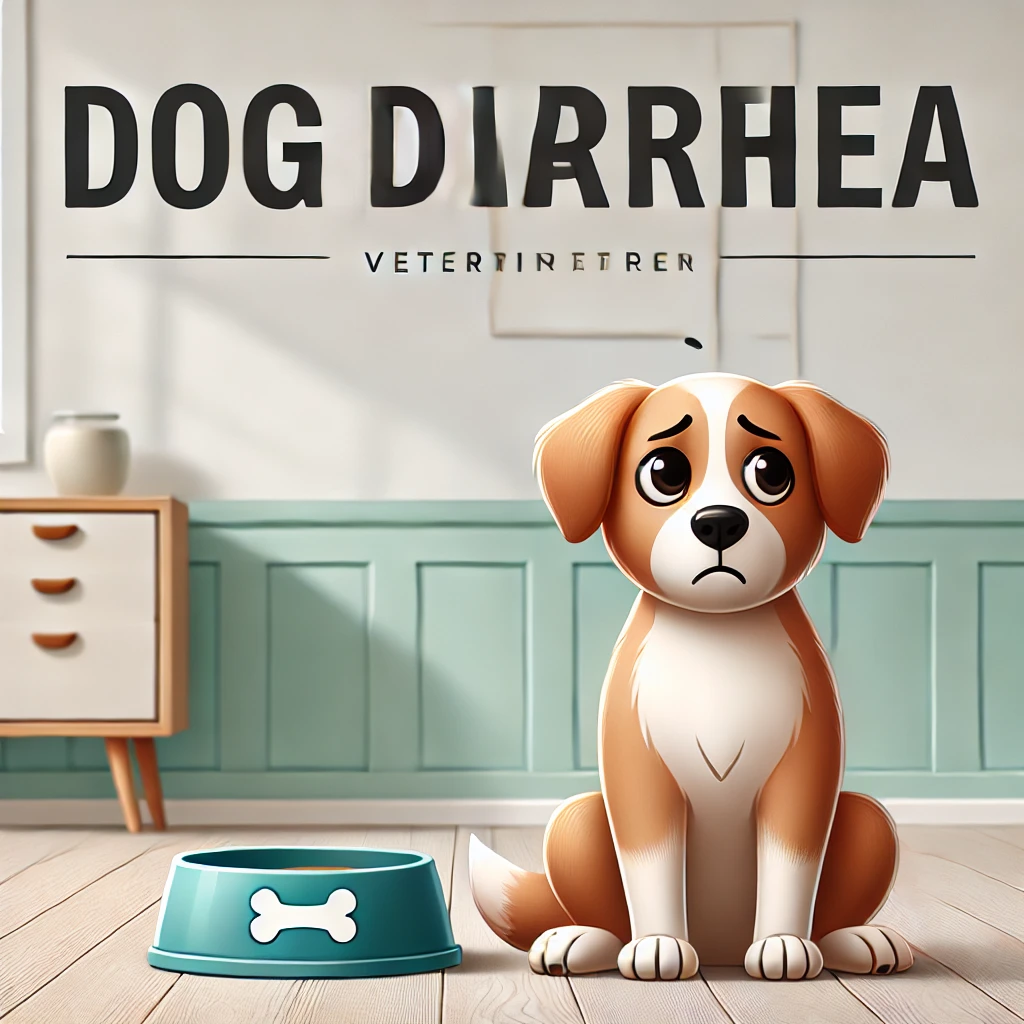
Dog Diarrhea: Causes, Symptoms, and Treatments
Diarrhea in dogs is a common issue that many pet owners face at some point. It can be alarming when your dog has diarrhea, especially if you’re unsure of the cause. This guide will help you understand why your dog may have diarrhea, how to treat it at home, and when to visit the vet.
What Causes Dog Diarrhea?
Dog diarrhea can stem from many factors, ranging from mild stomach upset to more serious conditions. Understanding the possible causes can help you pinpoint the issue and decide on the best action.
Some common causes of dog diarrhea include:
- Dietary indiscretion: Dogs love to explore the world with their mouths, which often leads to eating things they shouldn’t—like garbage, spoiled food, or unfamiliar substances.
- Food intolerance or allergies: Just like humans, dogs can develop sensitivities to certain foods. If your dog has diarrhea after eating a new food, it could indicate an intolerance.
- Parasites: Intestinal parasites, like roundworms, hookworms, or giardia, are a common cause of diarrhea in dogs, especially if they spend time outdoors.
- Infections: Bacterial, viral, or fungal infections can upset your dog’s digestive system and lead to diarrhea.
- Stress: Believe it or not, emotional stress can also cause dog diarrhea. Changes in routine, new environments, or loud noises may trigger digestive issues.
- Medication side effects: Certain medications, particularly antibiotics, can disrupt your dog’s gut balance, leading to diarrhea.
Why Does My Dog Have Diarrhea?
You might wonder, “Why would my dog have diarrhea?” The reasons vary, and in many cases, it’s not always clear right away. A one-time episode may not be concerning, but if your dog has diarrhea frequently or if there are additional symptoms, it’s essential to investigate further.
Watch for these signs that could indicate a more serious issue:
- Blood in the stool
- Vomiting along with diarrhea
- Lethargy or unusual tiredness
- Weight loss
- Dehydration
My Dog Has Diarrhea but is Acting Fine: Should I Worry?
If your dog has diarrhea but seems otherwise normal—still playful, energetic, and eating well—it could be a minor issue, such as mild indigestion or a reaction to a change in diet. Often, in these cases, diarrhea resolves on its own within a day or two. However, it’s still a good idea to monitor your dog closely to ensure the situation doesn’t worsen.

How to Treat Diarrhea in Dogs at Home
Here’s a simple guide for treating diarrhea in dogs naturally.
- Fasting: Temporarily withholding food for 12–24 hours can give your dog’s digestive system a chance to rest and recover.
- Bland diet: After the fasting period, introduce a bland diet to help settle your dog’s stomach. This usually includes boiled chicken (without skin or bones) and plain white rice. Gradually reintroduce regular food over several days once diarrhea improves.
- Pumpkin: Canned pumpkin (unsweetened, not the pie filling) is a natural remedy for diarrhea. Its high fiber content helps firm up loose stools. Add a small amount to your dog’s meals.
- Probiotics: Supplements containing probiotics can help restore the balance of healthy gut bacteria, speeding up recovery from diarrhea.
- Hydration: Ensure your dog stays well-hydrated. Diarrhea can cause dehydration, so offering water with electrolytes or a rehydration solution (safe for pets) can help replenish lost fluids.
What to Do if My Dog Has Diarrhea: When to See the Vet
While mild cases of diarrhea in dogs can often be managed at home, there are times when a vet visit is necessary. If your dog has diarrhea for more than two days, or if you notice the following symptoms, contact your veterinarian immediately:
- Blood or mucus in the stool
- Continuous vomiting
- Extreme lethargy
- Signs of pain or discomfort (whimpering, bloating)
- Refusal to eat for over 24 hours
- Severe dehydration (dry nose, sunken eyes, or excessive panting)
Watery Diarrhea in Dogs: What Could It Mean?
If your dog’s diarrhea is particularly watery, it could indicate a more severe digestive issue. This could range from a bacterial infection to an obstruction in the intestines. Watery diarrhea should be treated with extra caution as it poses a higher risk of dehydration. Ensure your dog drinks plenty of water and consult your vet for advice if the condition persists.
How to Stop Dog Diarrhea Quickly
You’re likely wondering how to stop dog diarrhea quickly. Follow these steps:
- First, stop feeding your dog for 12 hours to let the gut rest.
- Next, introduce small, frequent meals of bland food (boiled chicken and rice).
- Provide plenty of water to prevent dehydration.
- Add probiotics to your dog’s diet to restore healthy bacteria balance.
What Can I Give My Dog for Diarrhea?
In addition to the remedies mentioned above, there are over-the-counter medications that your vet might recommend for short-term use, such as Pepto-Bismol (in vet-approved doses). However, always consult your vet before giving any human medications to your dog.
Dog Diarrhea Treatment: Veterinary Options
If home remedies don’t work, your vet may prescribe medication to treat the underlying cause of diarrhea. This could include:
- Antibiotics for bacterial infections
- Antiparasitic medication for worm infestations
- Dietary management plans for food allergies or intolerances In severe cases, your vet may perform diagnostic tests such as blood work, stool samples, or X-rays to identify the cause and provide appropriate treatment.
Preventing Diarrhea in Dogs
Preventing diarrhea in dogs involves proactive care:
- Keep your dog on a consistent diet: Avoid sudden changes in food.
- Monitor your dog’s environment: Prevent access to harmful objects or food.
- Keep up with regular vet check-ups: Ensuring your dog is free of parasites and other health concerns can help reduce the risk of diarrhea.
- Consider probiotics: Adding probiotics to your dog’s daily routine may help maintain a healthy digestive system.

FAQs About Dog Diarrhea
What home remedy can I give my dog for diarrhea?
A bland diet of boiled chicken and rice, along with canned pumpkin, can help settle your dog’s stomach.
Why does my dog have diarrhea?
Your dog could have diarrhea due to diet changes, parasites, infections, or stress.
What can I give my dog for diarrhea?
You can offer probiotics, and canned pumpkin, and ensure plenty of fluids. Consult your vet before administering any medications.
How to stop dog diarrhea fast?
Start by fasting your dog for 12 hours, followed by small meals of bland food, and ensure hydration.
Why would my dog have diarrhea repeatedly?
Chronic diarrhea could indicate food allergies, intestinal parasites, or a digestive disorder. See your vet for a diagnosis.
What should I do if my dog has runs for more than two days?
If diarrhea persists for more than two days, or your dog shows additional symptoms like lethargy or vomiting, contact your vet.
Conclusion
Dog diarrhea can be stressful for both you and your pet, but understanding the causes and knowing how to treat it can provide quick relief. Keep an eye on your dog’s behavior, and don’t hesitate to consult your vet when necessary. With proper care and treatment, your furry friend will be back to feeling their best in no time.

I’m Haseem Ali, a passionate writer focused on dog diet, health, training, lifestyle, and care. I’m dedicated to sharing expert advice and practical tips to help fellow dog owners provide the best for their furry friends. When I’m not writing, I enjoy spending time with my own dogs and exploring new pet-friendly activities.
